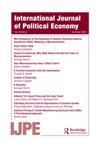Ten Years On, Two Crises Later: Evaluating EMU Institutional Reforms Since 2010
IF 1.3
Q3 ECONOMICS
引用次数: 2
Abstract
Abstract The article systematically reviews EMU governance reforms implemented, policy instruments introduced and further institutional reforms currently under discussion with a view of how far they have addressed the institutional shortcomings of the euro-area architecture, which have led to the euro crisis of 2010ff. It further explores how far these reforms have helped to prevent a replay of that crisis when the COVID-19 pandemic hit the euro area. To this end, the article first reviews the academic debate about the causes of the euro crisis that started with the Greek sovereign debt crisis in 2010. In a second step, it evaluates the reforms implemented since the onset of the euro crisis and during the COVID-19 crisis with regard in how far these reforms have addressed or could address the causes of the crisis and gives an outlook on potential forthcoming problems.十年后两次危机:评估2010年以来欧洲货币联盟的体制改革
本文系统地回顾了欧洲货币联盟实施的治理改革、引入的政策工具和目前正在讨论的进一步制度改革,并着眼于它们在多大程度上解决了欧元区架构的制度缺陷,这些缺陷导致了2010年的欧元危机。它进一步探讨了这些改革在多大程度上帮助防止了2019冠状病毒病大流行袭击欧元区时那场危机的重演。为此,本文首先回顾了始于2010年希腊主权债务危机的关于欧元危机成因的学术争论。第二步,评估自欧元危机爆发以来和2019冠状病毒病危机期间实施的改革,评估这些改革在多大程度上解决了或能够解决危机的根源,并对可能出现的问题进行了展望。
本文章由计算机程序翻译,如有差异,请以英文原文为准。
求助全文
约1分钟内获得全文
求助全文

 求助内容:
求助内容: 应助结果提醒方式:
应助结果提醒方式:


